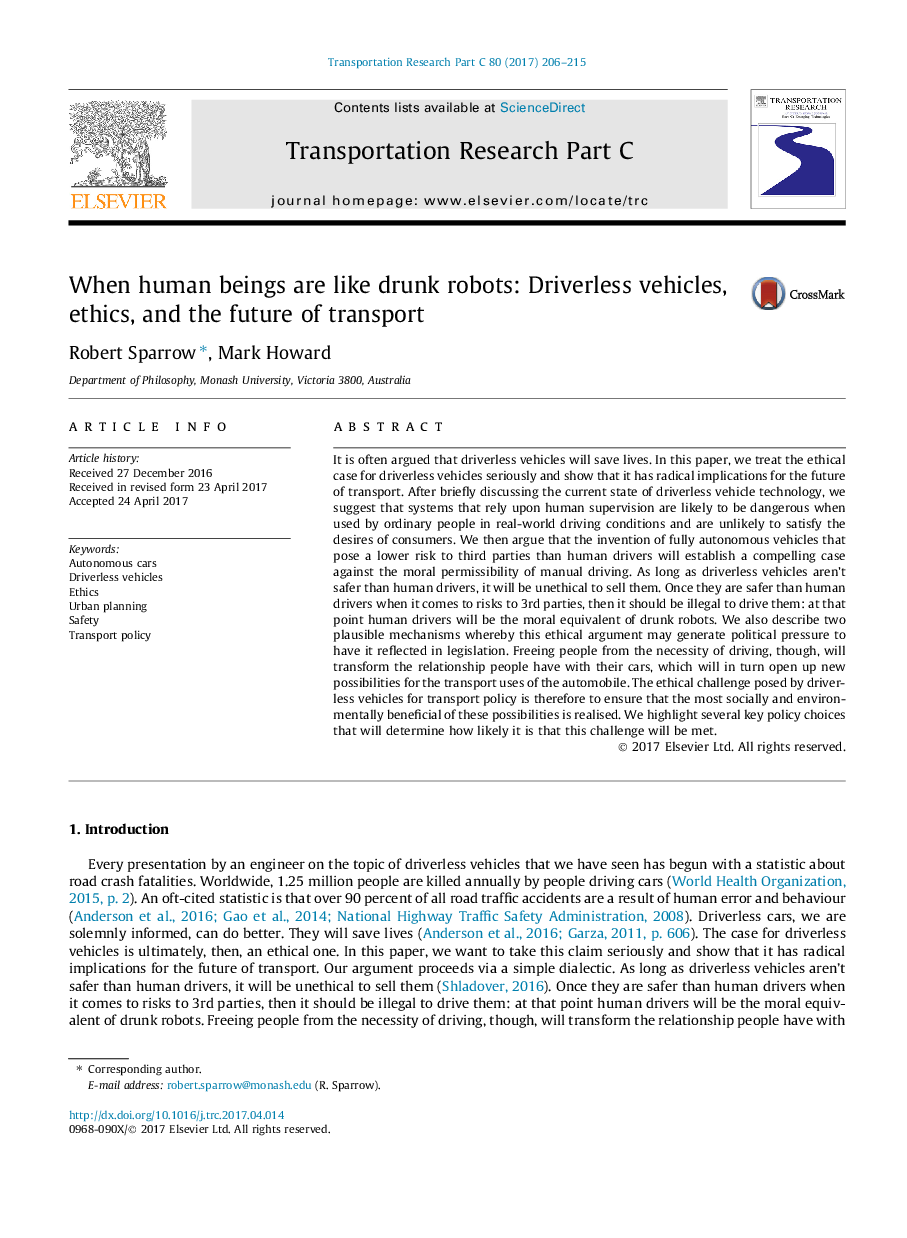| Article ID | Journal | Published Year | Pages | File Type |
|---|---|---|---|---|
| 4968447 | Transportation Research Part C: Emerging Technologies | 2017 | 10 Pages |
Abstract
It is often argued that driverless vehicles will save lives. In this paper, we treat the ethical case for driverless vehicles seriously and show that it has radical implications for the future of transport. After briefly discussing the current state of driverless vehicle technology, we suggest that systems that rely upon human supervision are likely to be dangerous when used by ordinary people in real-world driving conditions and are unlikely to satisfy the desires of consumers. We then argue that the invention of fully autonomous vehicles that pose a lower risk to third parties than human drivers will establish a compelling case against the moral permissibility of manual driving. As long as driverless vehicles aren't safer than human drivers, it will be unethical to sell them. Once they are safer than human drivers when it comes to risks to 3rd parties, then it should be illegal to drive them: at that point human drivers will be the moral equivalent of drunk robots. We also describe two plausible mechanisms whereby this ethical argument may generate political pressure to have it reflected in legislation. Freeing people from the necessity of driving, though, will transform the relationship people have with their cars, which will in turn open up new possibilities for the transport uses of the automobile. The ethical challenge posed by driverless vehicles for transport policy is therefore to ensure that the most socially and environmentally beneficial of these possibilities is realised. We highlight several key policy choices that will determine how likely it is that this challenge will be met.
Related Topics
Physical Sciences and Engineering
Computer Science
Computer Science Applications
Authors
Robert Sparrow, Mark Howard,
